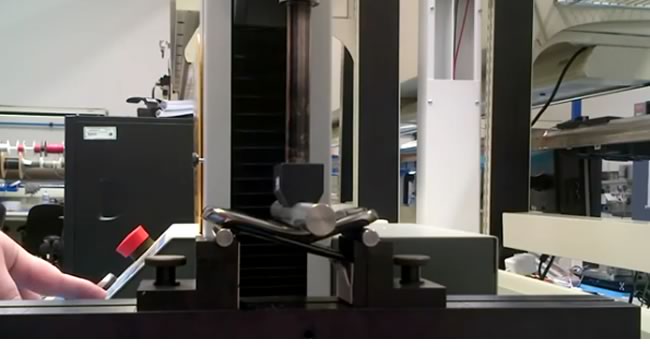Forget chatbots and robo-advisors, Absa just introduced an AI-powered digital clone of award-winning journalist Fifi Peters, and it’s rewriting the rules of what’s possible…
BlackBerrys brutally dropped, bent and submerged

 This article is for both the BlackBerry haters and lovers out there. The Hardware Support Lab at RIM posted three videos giving some insight into the testing performed on BlackBerry handsets during their development. If you have a sensitive stomach, please look away now.
This article is for both the BlackBerry haters and lovers out there. The Hardware Support Lab at RIM posted three videos giving some insight into the testing performed on BlackBerry handsets during their development. If you have a sensitive stomach, please look away now.
Bend test
The bend test ensures BlackBerrys can handle “posterior pressure”, or more simply, being sat on. Check out this video of a BlackBerry Torch 9850/9860 being Torch-ered (come on, I had to, how often do I get to make that joke?).
Drop test
Every new BlackBerry model gets dropped hundreds of times before the hardware is deemed strong enough for mass production. RIM uses high-speed cameras to review and analyse what happens to a dropped BlackBerry and testers use the information to revise the hardware design to make the device stronger and more durable.
Check out this Curve 8520/8530 being dropped and filmed at 2000 frames per second. Notice the shockwave that goes through the Curve on impact? Apparently BlackBerrys are designed to do that to absorb the shock from concrete into plastic.
Water test
RIM has a fancy name for this test. They call it the “Moisture Ingress Test”, but really, testers just drop the handset into a bucket of dyed water. The dye helps testers see where water can enter the handset. They use the information to improve the device’s water seal. A colleague tells me this test is total BS though. When a BlackBerry is subjected to the upchuck of a three year old, the handset throws in the towel. It’s definitely something RIM could look into. If BlackBerry 10 devices are going to be all that they can be, they need to be puke proof.
Other tests
RIM pushes the physical keyboard keys literally millions of times to ensure they click with the right pressure and can withstand all the typing abuse. Finally, BlackBerrys get zapped with an Electrostatic Discharge, or ESD, to make sure that the electronic components are protected.

